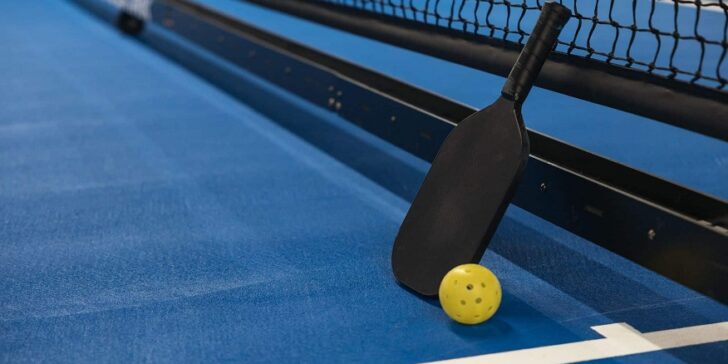
Pickleball, like any sport, is not just about physical prowess but also about mental fortitude and resilience. In this article, we delve into the psychology behind Pickleball and explore how mental toughness and resilience contribute to success on the court.
Introduction to the Psychology of Pickleball
Pickleball is a fast-paced and competitive sport that requires players to not only possess technical skills but also mental agility. The psychology of Pickleball encompasses various mental aspects, including focus, confidence, resilience, and emotional regulation, all of which play a crucial role in performance and outcomes.
Understanding Mental Toughness in Pickleball
Mental toughness in Pickleball refers to the ability to remain focused, composed, and resilient in the face of challenges and adversity. It involves staying calm under pressure, maintaining confidence in one’s abilities, and adapting to changing situations during a match.
Building Resilience on the Pickleball Court
Resilience is the capacity to bounce back from setbacks and failures. In Pickleball, resilience allows players to recover quickly from mistakes, losses, or unfavorable circumstances and continue to perform at their best.
Read More: The Buzz around Affordable Pickleball Courts
Overcoming Challenges and Adversities
Pickleball, like any competitive sport, presents various challenges and adversities, such as making errors, facing tough opponents, or dealing with unfavorable conditions. Developing resilience helps players navigate through these challenges and emerge stronger from them.
The Role of Confidence and Focus
Confidence and focus are essential components of mental toughness in Pickleball. A confident player believes in their abilities and stays focused on the present moment, allowing them to make effective decisions and execute shots with precision.
Strategies for Developing Mental Toughness
Building mental toughness requires deliberate practice and the adoption of specific strategies. Visualization techniques, goal setting, positive affirmations, and mindfulness practices can enhance mental resilience and performance on the Pickleball court.
Visualization Techniques for Pickleball Success
Visualization involves mentally rehearsing Pickleball scenarios and outcomes. By visualizing successful shots, strategies, and match situations, players can reinforce positive behaviors and build confidence in their abilities.
Coping with Pressure and Performance Anxiety
Pressure and performance anxiety are common challenges in competitive Pickleball. Learning how to manage stress, control breathing, and stay focused on the task at hand can help players overcome nerves and perform at their peak.
Maintaining Motivation and Passion
Sustaining motivation and passion for Pickleball is essential for long-term success. Setting meaningful goals, finding enjoyment in the game, and staying connected with fellow players can help maintain enthusiasm and commitment to improvement.
Mindfulness and Emotional Regulation in Pickleball
Mindfulness practices, such as deep breathing and meditation, promote emotional regulation and mental clarity on the Pickleball court. By staying present and non-judgmental, players can better manage emotions and stay in control of their performance.
The Importance of Self-Talk and Positive Thinking
Positive self-talk and constructive thinking patterns contribute to mental toughness and resilience in Pickleball. Encouraging one, reframing negative thoughts, and focusing on solutions rather than problems can boost confidence and performance.
Overcoming Setbacks and Learning from Failure
Setbacks and failures are inevitable in Pickleball. Embracing failure as a learning opportunity, analyzing mistakes, and adapting strategies accordingly fosters growth and development as a player.
Cultivating a Growth Mindset in Pickleball
A growth mindset entails believing in the potential for improvement and embracing challenges as opportunities for growth. Cultivating a growth mindset in Pickleball encourages continuous learning, resilience, and a positive attitude towards setbacks.
Conclusion: Harnessing the Power of the Mind in Pickleball
In conclusion, the psychology of Pickleball underscores the importance of mental toughness, resilience, and psychological skills in achieving success on the court. By honing mental skills, staying focused, and maintaining a positive mindset, players can elevate their performance and enjoyment of the game.
